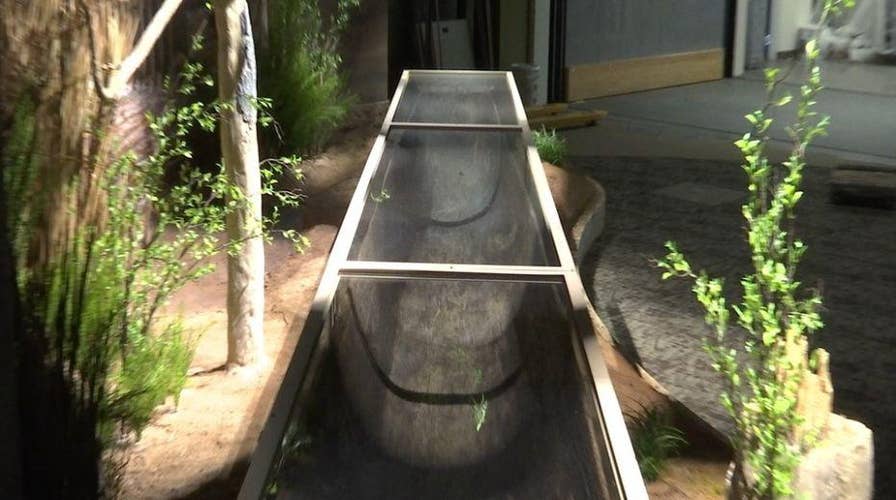500-year-old Native American canoe to be unveiled
An ancient Native American canoe is set to be unveiled to the public at a newly built museum in Mississippi
A wooden canoe made by Native Americans centuries ago will soon be available for the public to see at a new museum in Mississippi.
The canoe is about 25 feet long and was made from a nearly 200-year-old bald cypress tree. Curators say the Native Americans burned, scraped and chipped at the trunk of a tree to make the canoe between 1500 A.D. and 1600 A.D.
The canoe was discovered in 1989 and has been in storage for decades. Now it will be displayed at the newly built Museum of Mississippi History.
NATIVE AMERICAN CANOE FROM 1700s PRESERVED AT MAINE MUSEUM
“It is [25] feet long [and] 500 years old,” Rachel Myers, the director of the museum told Fox News. “[It] Was dredged up by some folks in Mississippi and it was so unique. Because most of the time things like this disintegrate. The climate was just right to where it was preserved perfectly.”
Myers added that curators helped further preserve the canoe by adding a chemical compound to the wood and enclosed it in a glass case. The artifact was discovered buried under mud by workers from the U.S. Army Corps of Engineers in Steele Bayou in the Mississippi Delta. It was given the nickname Swan Lake Canoe because of the location it was uncovered.
Similar vessels were used by Native Americans to travel along some of Mississippi’s major rivers.
BOSTON UNIVERSITY STUDENTS DISCOVER 1915 TIME CAPSULE
“Archaeologists definitely have some understanding that there were certainly five or more people that could be in [a] canoe [like] this and traveling along the Mississippi River,” Myers said. “It was an amazing trade route.”
A similar canoe was unearthed in Louisiana earlier this year along the Red River. It is believed to be 800 to 1,500 years old. Unlike the canoe found in Mississippi, half of the boat’s side and the end were missing.
The Swan Lake Canoe is prominently featured in the museum’s first exhibit hall called The First Peoples. The exhibit is dedicated to the state’s Native American history from 13,000 B.C. to 1518 A.D. Myers adds that curators consulted two tribes from Mississippi and Oklahoma during the installation process but the group who made the canoe is unknown.
PAUL REVERE FAMILY OUTHOUSE MAY HAVE BEEN UNCOVERED IN BOSTON
It is one of the largest pieces to be exhibited at the museum. The governor of the Magnolia State says over 15,000 years of history will be on display at the museum along with the adjacent Mississippi Museum of Civil Rights.
“It is an amazing place and so important that we come and reflect and learn. And continue to remember our history,” Governor Phil Bryant said during a news conference at the museum on Oct. 18.
Mississippi will celebrate its bicentennial on Dec. 10 of this year and the museum, along with the Mississippi Museum of Civil Rights, is scheduled to open on Dec. 9.
The Associated Press contributed to this report.








































